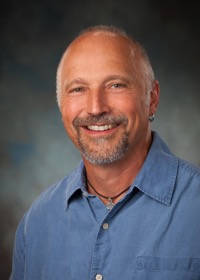Thoughts While Walking

By: John Goetz, LPC
In March I was introduced to a short independent film, The Butterfly Circus, Created by Joshua and Rebekah Weigel in 2009. The setting is the 1930s, America is in the middle of the Great Depression. Many people are jobless and homeless, and the circus is a distraction from daily struggles. Mr. Mendez is the charismatic master of a small circus, the Butterfly Circus. While driving one evening he and two other members of his circus see a sign for a (traveling) carnival and a sideshow and stop to see a funfair with carousels, games, and other entertainment, including a freak show. Here Mr. Mendez meets Will, the main attraction, who has tetra-amelia syndrome, which means he has no limbs, and is on show as a freak of nature. Will is bitter and unhappy, but after meeting Mendez, he decides to leave the carnival and manages to hide on one of the Butterfly Circus trucks to escape. The people in the circus welcome Will and Mr. Mendez tells him that he is welcome to stay with them as long as he likes but that his circus does not have freak show and that Will must do something else than just be a freak to become part of the act. Mr. Mendez pushes Will to do things for himself even though he has no limbs and Will finds this to be somewhat cruel. One day Will accidentally realizes that he can swim, so he decides to perform a difficult act in the circus. He climbs to the top of a tall pole and dives into a small tank full of water. Will finds his identity and a purpose as an act. He earns his place in the show not because of his odd appearance but because of who he is and what he can do.
After watching this movie my thoughts raced trying to grasp the greater themes while keeping sight of the individual lives being portrayed. First I thought about the movie “The Miracle Worker”; the story of a young Helen Keller, who due to a childhood illness lost her sight and hearing, and her teacher Annie Sullivan. I remember thinking as a young child how cruel Annie was with Helen but being told that is was necessary in order for Helen to learn to communicate with the world at large.
Secondly I thought about the Americans with Disabilities Act (ADA) passed by congress in 1990 and hailed as the first comprehensive civil rights law addressing the needs of people with disabilities, prohibiting discrimination in employment, public services, public accommodations, and telecommunications. On one hand a common sense statement that as a country we will provide access and opportunity to all people regardless of disabilities and on the other hand another unfunded mandate from the federal government.
Thirdly I thought about the TV show “The Amazing Race” and this season’s first episode in which a participant, Remond, who lost part of his leg due to an IED is the first one picked to partner with by the winner of the first task. The young X games athlete, Matt, who picks him to be his partner says, “Remond seems like a guy who believes in himself and when the going gets tough will not give up and will stop at nothing”. I wonder if it is Remond’s handling of his disability that influenced Matt’s decision, they had not met before the first episode as all participants this season are complete strangers.
Is a “disability” a curse from God or just another struggle we will be faced with in life? Are these struggles we face in life road blocks or opportunities? Are these physical road blocks/opportunities or are they spiritual ones, and who are they roadblocks/opportunities for, the one with the disability or the ones they meet in life? When is lending a hand, a help up, and when is it enabling? Can a disability be a crutch, can I say that? I have no answers just questions. Google “The Butterfly Circus”, watch it yourself and see what questions you have.
John Goetz is clinical director at Edmond Family Counseling. To learn more about EFC, check out edmondfamily.org. All donations are tax-deductible.


